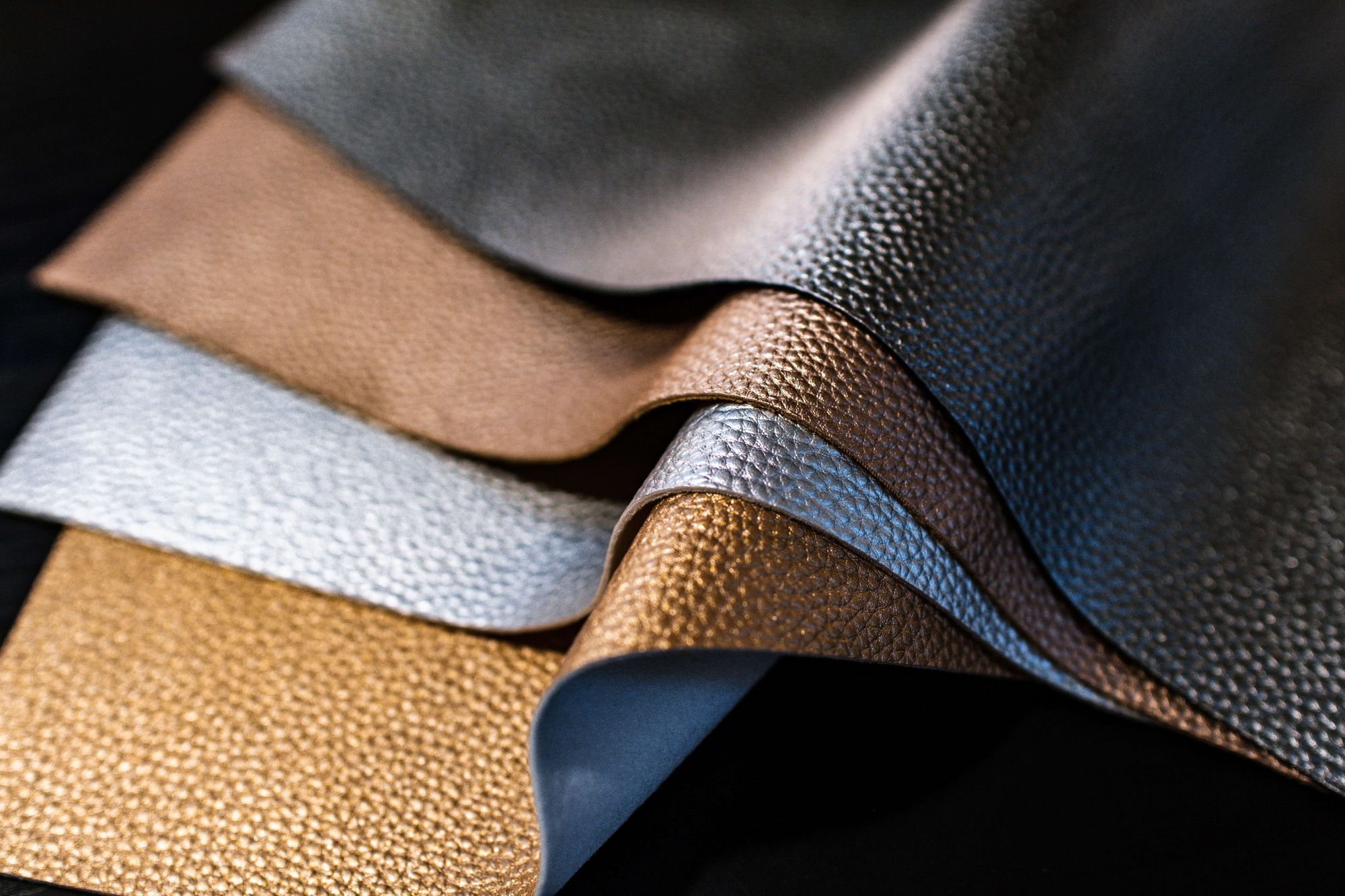The Best Sustainable Fabric Suppliers To Start Your Clothing Brand
As the public becomes more and more aware of all the demerits of fast fashion, brands and clothing manufacturers worldwide are turning towards sustainable sourcing of materials for their clothing and fashion businesses. The sustainable fashion scene has really exploded in the past years, with entrepreneurs finding new, innovative and often strange ways to generate fibre and materials that are eco-friendly and conscious of their supply chain.
Big brands such as Hugo Boss and H&M have started adopting these new techniques and materials in their clothing line, and the ethical fashion market size is expected to grow to $8,246.1 million in 2023 and $9,808.5 million by 2025.
What is Sustainable Clothing?
There is a lot of grey area when it comes to defining exactly what sustainable fashion means. There is a lot of greenwashing prevalent in the industry, where the sourced materials only give an illusion of sustainability, but our in fact quite detrimental to the environment.
While sustainable fashion is partly about the materials sourced as well as the social, economic, and cultural impact of the production processes, is also about consumption patterns and consumer behavior.
Arguably, upcycling and thrifting are some of the greenest practices in the fashion industry because there is no need for an intensive production line. Timeless pieces that are high quality can last a couple of decades and are passed down across generations, making them truly sustainable.
When manufacturing new garments, other sustainability metrics are adopted. For new fabrics to be truly sustainable, they need to follow eco-friendly practices across all stages of the product lifecycle.
Sustainable Fabrics and Manufacturers
There are plenty of new fabric innovations in the ethical fashion sphere. These include materials sources from by-products of food manufacturing processes such as apples and pineapples, as well as nylon produced from recycled PET bottles. There are plenty of fabrics to choose from, for all kinds of eco-entrepreneurs, and here are our top picks.
1. Repreve
Fibre Made From Recycled PET Bottles
REPREVE fiber is made by Unifi, which is a world-renowned global textile solutions company. The makers of Repreve have recycled over 25 billion plastic bottles, diverting them from ending up in landfills. Repreve is basically a fiber that is bought by yarn mills, which then convert it into a fabric that can be used by brands to make their sustainable clothing. Repreve has a list of yarn mills that they partner with, so you can find one that suits your needs by accessing their fabric library.
Leading global brands like Toms, Patagonia, and Aeropostale use Repreve fiber in their product offerings. They manufacture high-performance fiber for all kinds of use cases - from flame-resistant fiber to built-in UVA/UVB protection.
2. Econyl by Aquafil
A Great Alternative To Nylon 6
Econyl yarn by Aquafil is leading the way in helping the fashion industry achieve a circular economy. They use nylon waste to generate a new yarn that has the same characteristics as nylon made of virgin raw material. Waste such as fishing nets or scraps from the production of textiles which are destined to end up in a landfill or pollute our water sources, are recovered and converted to Econyl.
The production process ensures that Econyl fabrics have the capacity to be recycled infinitely without losing their quality, which supports the circular economy vision. By using abandoned nets, they help save thousands of marine animals that get killed by unsustainable fishing practices. Econyl is manufactured in such a way that 70,000 barrels of crude oil are saved for every 10,000 tonnes of raw materials recycled into Econyl. Compared to traditional production methods, Econyl production also saves 57,000 tonnes of CO2 emissions.
Econyl fabric is used by global companies such as Adidas and H&M in a large variety of clothing such as swimwear, sportswear, and underwear.
3. Tencel Fibres
Wood-Based Sustainable Modal and Lyocell Fibre
Tencel's innovative REFIBRA™ technology uses cotton scraps generated as waste from the production of garments, these scraps are then transformed into cotton pulp. Up to one-third of this is added to wood pulp. This combined raw material is then converted to produce new virgin TENCEL™ Lyocell fibers which are used in garments by brands retailers around the world.
Tencel's vast range of fibers is used by several sustainable brands such as Allbirds and Levi's.
4. SeaCell
Seaweed Fibre - Organic, Renewable, and Good For Your Skin
Developed by Smartfiber AG, a German manufacturer of nature-based lyocell fibers with various functionalities for the textile market. After years of development, they have patented SeaCell, a completely biodegradable type of fiber made from wood and seaweed.
The manufactures make sure that the seaweed is harvested sustainably, from a part of the plant that completely regenerates. On top of that, the seaweed is completely unadulterated and no harmful chemicals are added to it, which make it great for the skin and prevents irritation and inflammation.
The porous structure of the SeaCell keeps you warm in the winter and cool in the summer.
5. Lenzing’s Ecovero
Wood Pulp Based Fibre That Is Responsibly Sourced
Ecovero is an eco-responsible viscose that is produced using responsibly sourced wood pulp. The fibers have been awarded the EU Ecolabel which certifies that they meet the highest environmental standards throughout the product life cycle - from the sourcing of raw materials to the end disposal process.
When compared to the generic viscose production process, Ecovero generates up to 50% lower emissions and water impact. Ecovero fibers are used by global brands around the world such as Esprit, Hunkemoller, and J. Crew.
6. Piñatex
Vegan Leather Made From The By-Product of Pineapple Harvest
Piñatex was developed by Dr. Carmen Hijosa, a leather goods expert who was shocked at how adverse the environmental impact of mass leather production and chemical tanning can be while she was on a site visit in the Philippines. Inspired by local traditional weaving practices, Hijosa wanted to create a fabric that could be mass-produced while being kind to the environment as well as beneficial to the local communities.
As a result, driven by the principles of a circular economy, she developed Piñatex. Piñatex uses the by-product of pineapple harvest as its main raw material.
The fabric is multipurpose and can be used across a multitude of fashion and accessories. It is also used by over 1000 brands worldwide, including global names such as H&M and Hugo Boss.
7. Desserto
Nopal cactus based vegan leather
Vegan leather is causing a huge stir in the sustainable fashion industry. While traditionally manufactured from polyester which itself can be harmful to the environment, new innovations have led to the production of leather from more eco-friendly and biodegradable sources, one of which is Desserto.
Desserto is a type of vegan leather manufactured from Nopal cactus which is native to Mexico. It is partially biodegradable and can be used extensively for a number of different types of use cases within both the fashion and furniture industries.
A number of leading fashion brands have started using Desserto in their products. These include big names such as Karl Lagerfeld, Fossil, and Clae.
Related: Eco-Friendly Vegan Leather Manufacturers For Your Ethical Fashion Brand


